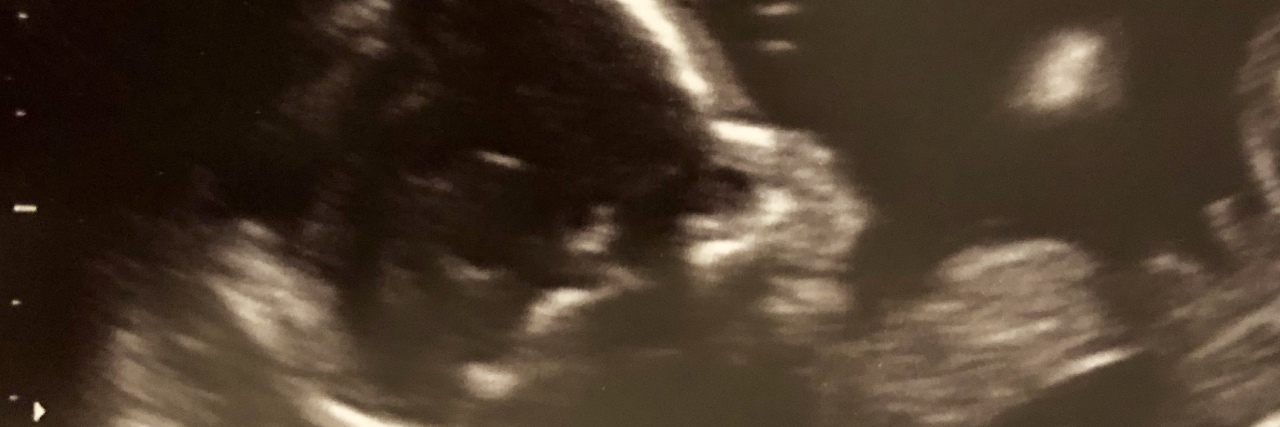When My Baby Received a Prenatal Diagnosis of CDH
Editor's Note
April is congenital diaphragmatic hernia (CDH) Awareness Month: over 1600 babies in the United States are born with CDH every year. Many families learn of this diagnosis at their 20 week ultrasound. CDH has a survival rate of 50 percent.
This is what I would tell myself on the day my baby was diagnosed with a congenital diaphragmatic hernia (CDH):
There is nothing — absolutely nothing — I can say to you today to ease your pain. Even if I could race back to you in a DeLorean, I know today you just have to be.
You can only collapse there on the floor next to your bed, unconscious of anything but the tidal wave of brokenness and pain. It feels as if your whole world — as if you –– are shattered; because you are.
The girl who woke up this morning is gone, and on some level you already know you will never see her again. The woman who cared a little too much about stroller reviews and nursery themes because she didn’t have any “real” problems is already a memory.
You’ll have to grieve the loss of her, too. In the future, you will think of her fondly and smile — it’s not her fault she didn’t understand. And in fact, if you had your way, no one ever would.
No — if I could go back in time, I’d meet up with you on day two or three. I’d find you after your desperate hours long phone conference with a surgeon you’ll never meet; after you cancelled the gender reveal party and purposely abandoned the pink and blue decorations in the trunk where they would remain hidden and unseen; and after you changed your spring-break “baby moon” to a road trip with consultations at three different children’s hospitals.
The first three days you were in shock. Painful as those days may have been, you needed that time to process the fact that things are not always OK; life is often hard and unfair. And that ultimately — although the girl reading stroller reviews didn’t know it — she had no control over her child’s future and neither do you.
You will emerge from the fog of those first brutal days and when your ever-larger pregnant belly prompts sweet old ladies to innocently ask if you want a boy or a girl, you’ll find that your old standby answer, “I don’t care as long as it’s healthy” is now the most brutal sucker punch of all.
Even years later when you hear people ignorantly parrot that phrase, “I don’t care as long as it’s healthy,” you will catch your breath and look away.
You’ll learn to tell the old ladies that you are happy to be having a boy. But what you really want to shout is: “I don’t care that he’s not healthy, as long as he lives.”
You’ll repeat that mantra to yourself and know it’s true — you will accept illness and pain and heartbreak and disability — as long he lives.
You will be amazed that your body can run out of tears. You’ll be even more amazed when — tormented by horrible things that your brilliant specialists specifically told you not to google — your mind finally sleeps. Although you fear that you can not live through this pain, your body will continue to march on.
Just like when you drive a well-known route and reach your destination with no memory of having seen familiar landmarks, your body will automatically take you to work and back home again.
Normalcy is an amazing healer. Eventually you will emerge from the fog and your mind will remind you to seek out cheese fries, bad reality TV, and cuddles from your chihuahuas.
I could show you pictures and videos of the “happily ever after” at the end of all this. In fact, your closest friends will relentlessly tell you that it’s all going to be OK. While you appreciate their positivity, you’ll often wish that instead of reassurances they would just be willing to see your pain. What you want most is for people to say, “The worst may come, but if it does, I’m here, I’m ready, I’ve got you.”
You and your husband promise each other you will find happiness on the other side of this. At best, you will have a lifetime to share with a beautiful baby boy. And if the worst happens, you will run away from the empty whale and sails-themed nursery. If the baby never comes home, you will book the next flight to Tahiti.
When the NICU psychologist warns that 90 percent of NICU marriages fail, you ignore her and promise your husband that even if CDH takes your child, you will not allow it to take your marriage, too.
I could tell you that you are strong — but I know that you’d much prefer the luxury of staying weak.
Although there are so many things I’d want to say, none of my words could bridge the gap between you and me, or lessen the pain you will face. The only way to ease this pain is to walk through it.
You will live through this, battered and bruised. Just like the Velveteen rabbit, you will emerge broken, but you will become “real.”
So, perhaps the only thing I would tell you is we have never been to Tahiti.

